Spelling skills improvement Grammar Worksheets for Ages 3-8
3 filtered results
-
From - To
Discover engaging Spelling Skills Improvement Grammar Worksheets designed for children ages 3-8! Our resourceful activities focus on enhancing spelling proficiency through fun and interactive exercises. Tailored to young learners, these worksheets incorporate colorful illustrations and easy-to-follow instructions that make learning enjoyable. Perfect for classroom or home use, they provide a thorough understanding of phonics, word formations, and vocabulary building. Watch your child gain confidence as they develop essential spelling skills, laying a solid foundation for reading and writing. Explore our collection today and watch your little ones thrive in their literacy journey with these playful and educational worksheets!
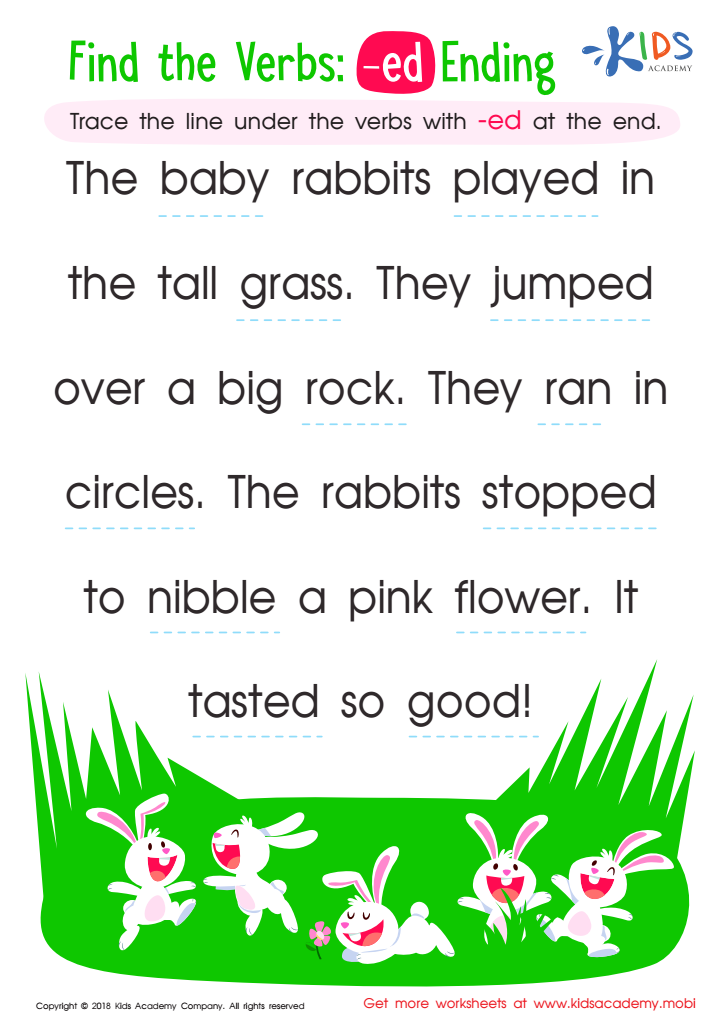

Find The Verbs: -ed Ending Worksheet
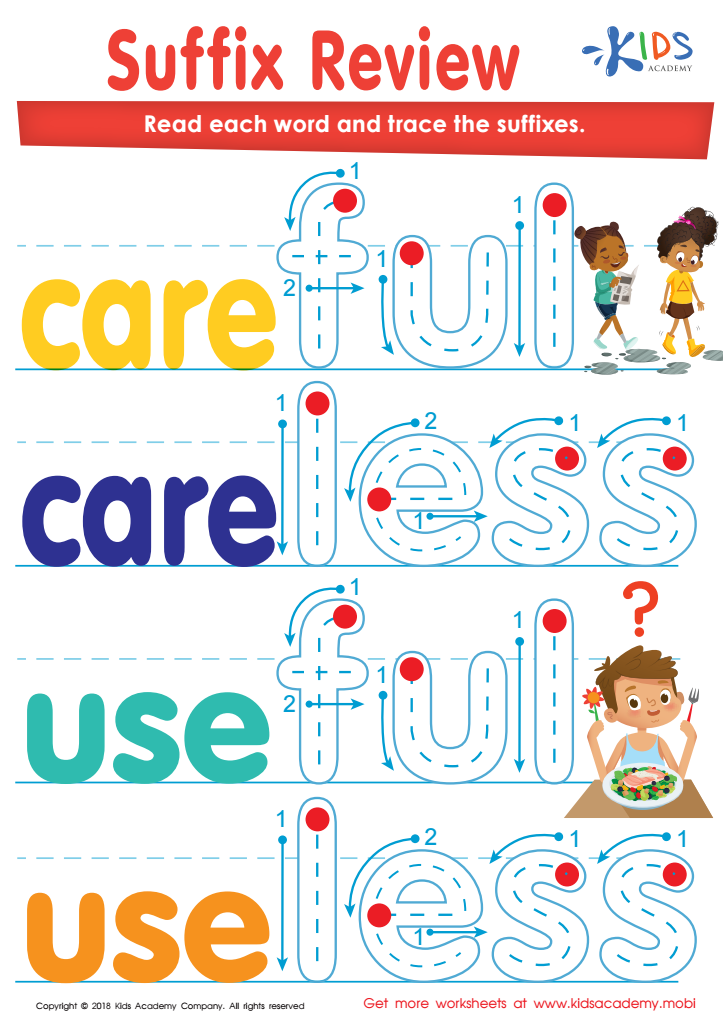

Suffix Review Worksheet
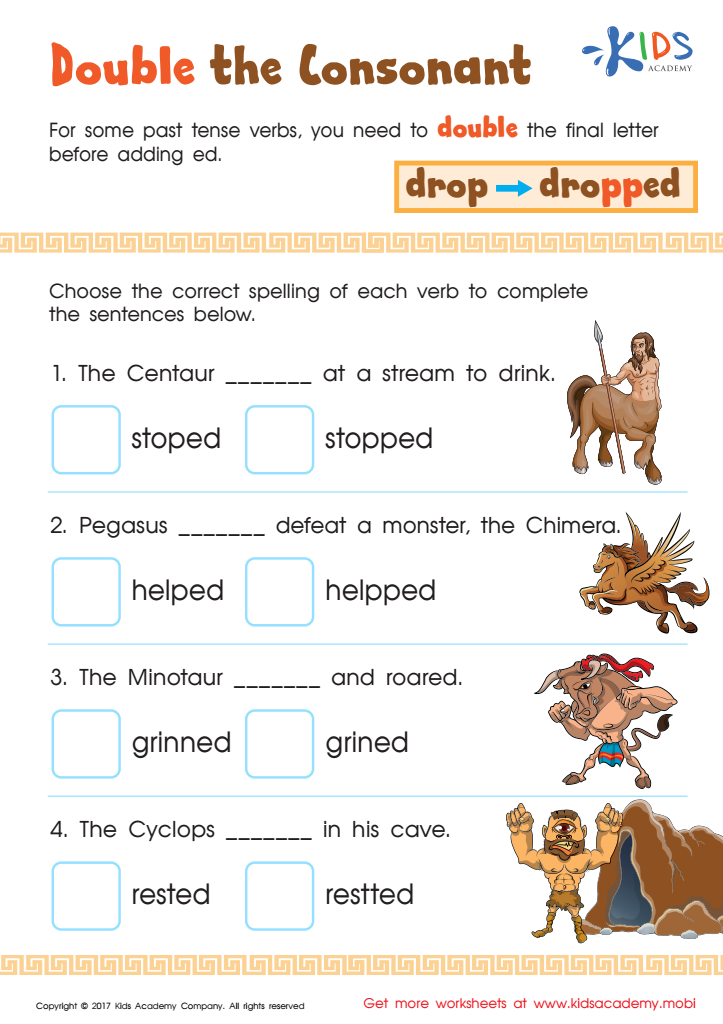

Double Consonant Spelling Worksheet
Spelling skills and grammar are essential components of language development for children aged 3-8. During these formative years, children are rapidly acquiring vocabulary and learning to communicate effectively. Improved spelling skills enhance reading and writing abilities, which are critical for academic success. When children understand spelling patterns, they gain confidence in their literacy skills, fostering a positive attitude towards learning.
Furthermore, proper grammar lays the foundation for clear communication. It helps children express their thoughts coherently and interact effectively with peers and adults, which is vital for socialization. Using correct grammar also enables children to follow instructions and comprehend lessons more effectively, further boosting their learning experiences.
Parents and teachers play a crucial role in supporting spelling and grammar development. By encouraging practice through fun activities, such as spelling games and storytelling, they can make learning engaging. Regular feedback and guidance can nurture a child's language skills, preparing them for future educational challenges.
In summary, prioritizing spelling and grammar skills improvement in early childhood not only sets the stage for academic achievement but also enhances social interactions and self-confidence, ultimately contributing to holistic development. Therefore, it is vital for parents and teachers to invest time and resources in these foundational skills.
 Assign to My Students
Assign to My Students
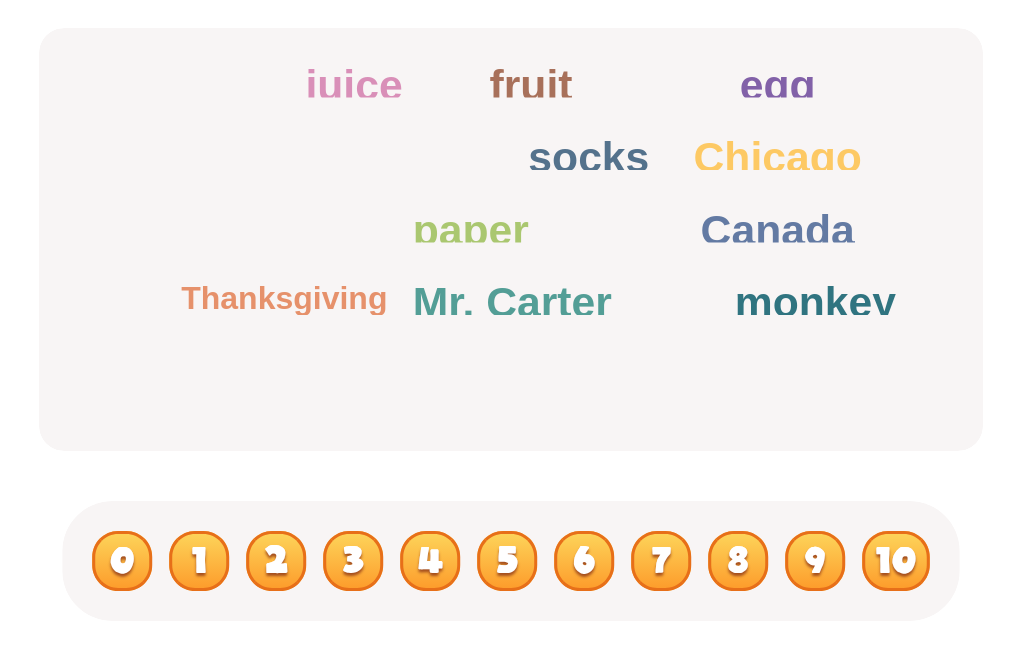
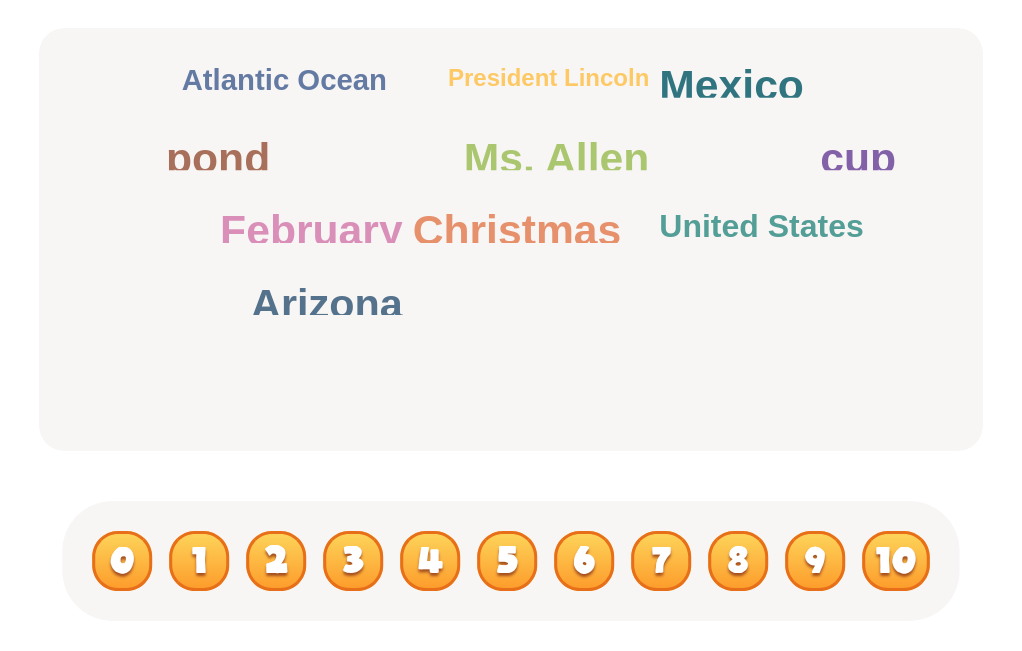
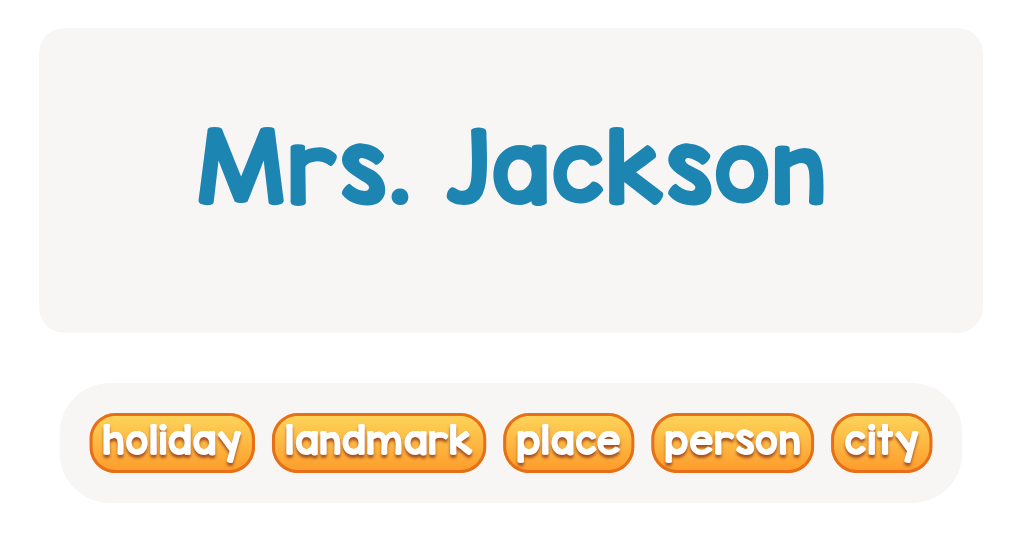
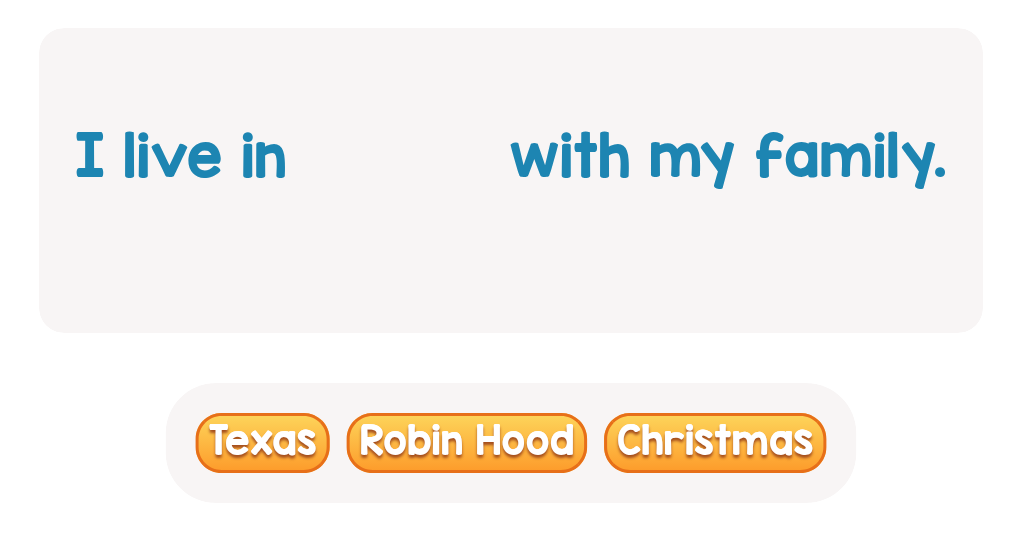

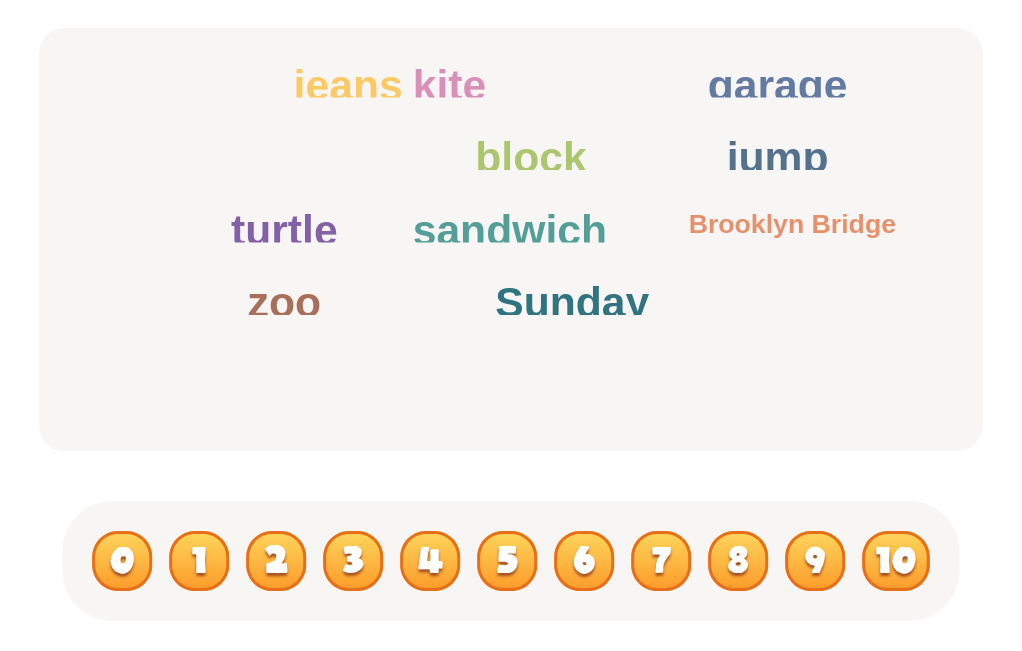
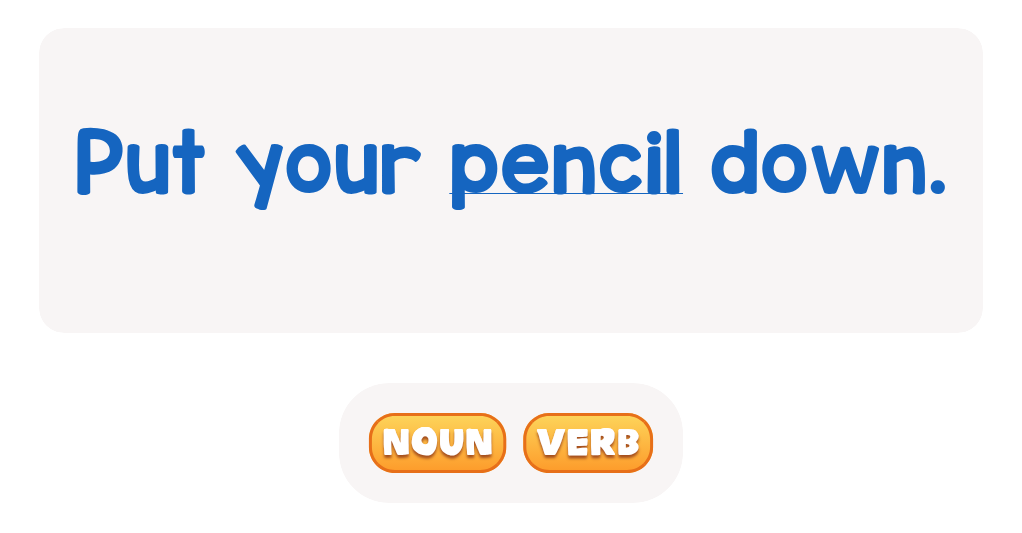
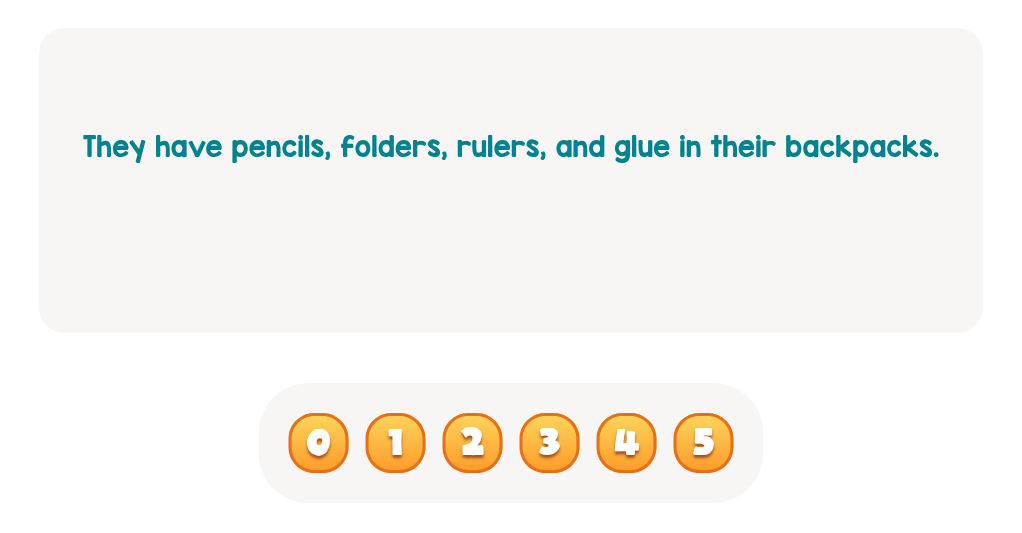
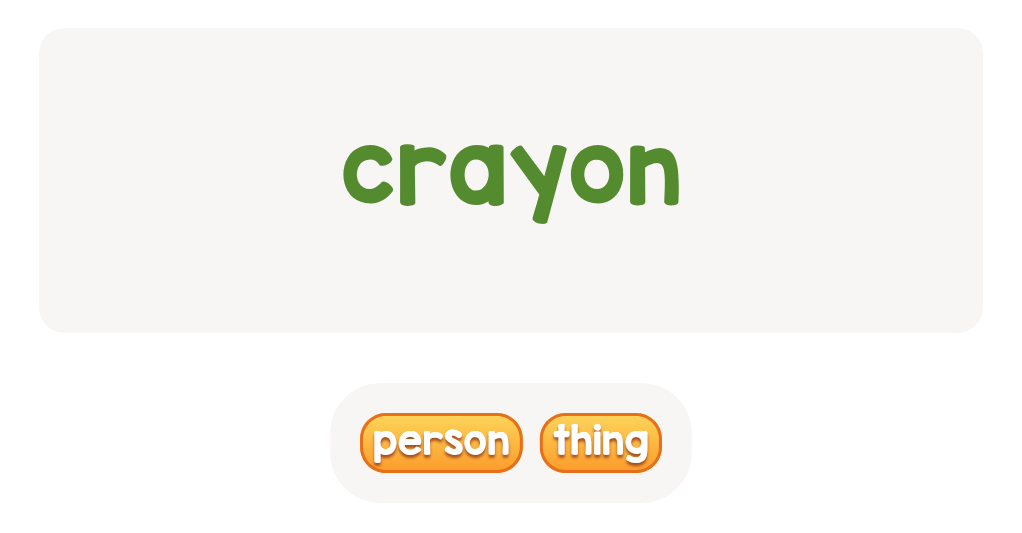
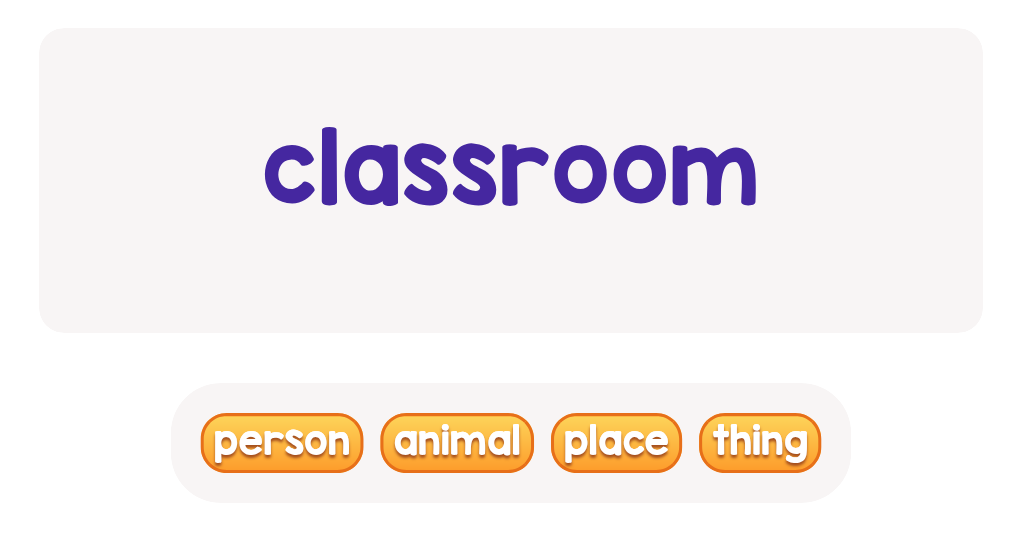








.jpg)











